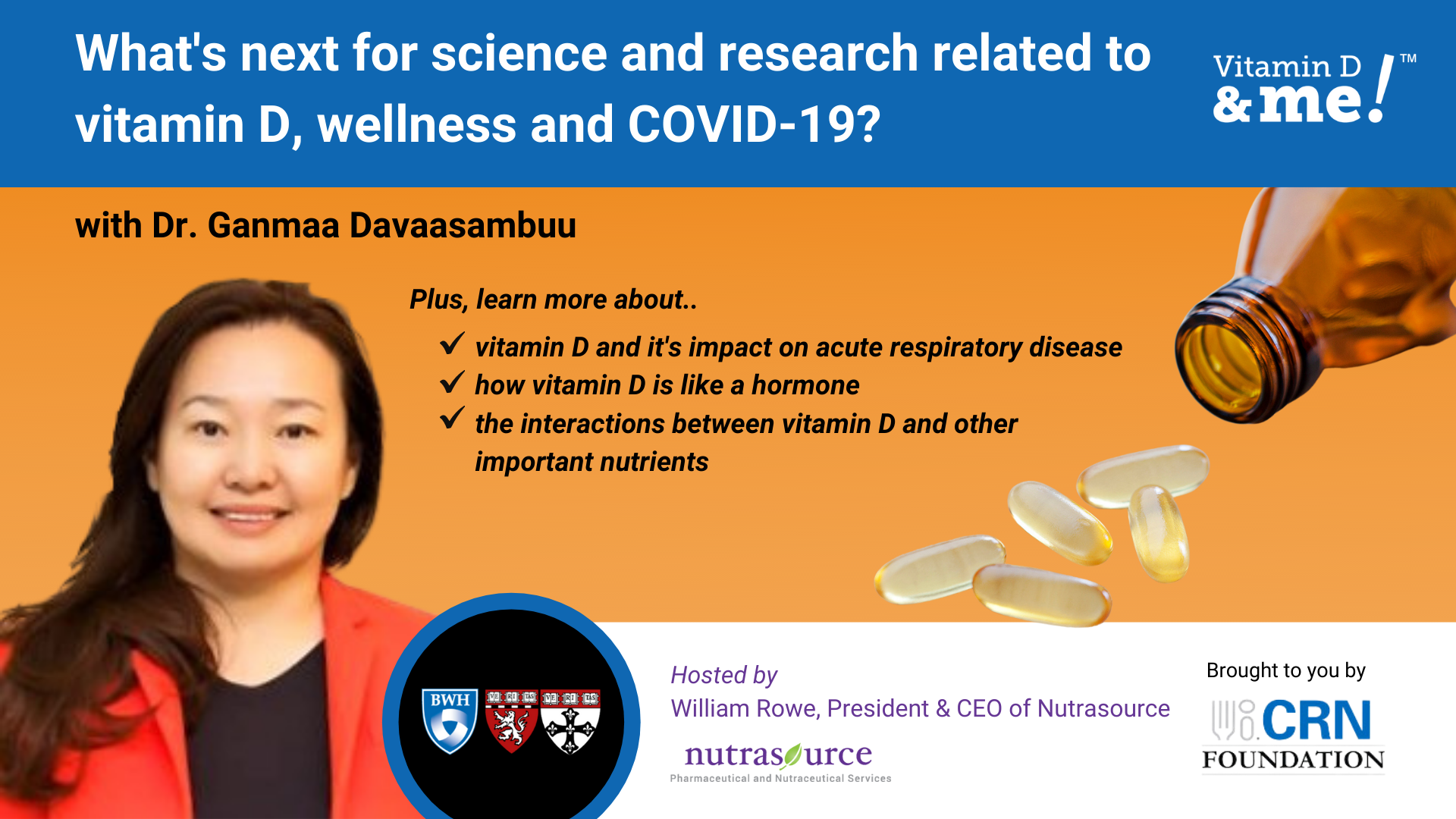OCTOBER 8, 2021
Leading researcher discusses role of vitamin D in fighting respiratory infection, COVID-19

"Vitamin D supplementation can significantly reduce acute respiratory infection in populations with prevalent vitamin D deficiency," observed Dr. Ganmaa Davaasambuu in a recent interview for the Vitamin D & Me! consumer education website. Dr. Ganmaa explained that compared to individuals with sufficient vitamin D levels, those with a deficiency have a greater risk of both contracting respiratory infections, including COVID-19, as well as experiencing more severe outcomes (i.e. hospitalization, ICU admission, intubation, etc.).
Go deeper: Dr. Ganmaa’s interview offers insights on:
-
How nutrients work together with vitamin D
-
Impact of vitamin D on acute respiratory diseases like pneumonia
-
Key differences between Mongolian and North American diets that impact vitamin D status—and what we can learn from each culture
-
The relationship between disease and vitamin D deficiency
The expert behind the research: Dr. Ganmaa is an assistant professor at both Harvard Medical School and Harvard T. H. Chan School of Public Health, as well as an associate epidemiologist at Brigham and Women Hospital in Boston. Her research focuses on nutrients, including vitamin D, and infectious disease and tuberculosis. Dr. Ganmaa founded the Mongolian Health Initiative NGO (MHI), which has conducted nutrition research and projects in Mongolia since 2004.
Through the Vitamin D & Me! initiative, the CRN Foundation is delivering unbiased education on the latest science to help people make smarter decisions to maintain their health, focusing on U.S. consumers 55 and older. The website features summaries of key research on vitamin D and COVID-19, interviews with scientific experts, educational information on what vitamin D means to health status, and vitamin D in the news.
Get the latest on CBD, drug preclusion, more during upcoming Washington Watercooler

Tune in next Thursday, Oct. 14, for the third edition of the Washington Watercooler series from the nation’s capital with CRN—your team in Washington, D.C., connected to Congress, regulators, and other key influencers affecting the dietary supplement industry.
In this newest installment, CRN’s Steve Mister and Julia Gustafson will discuss:
-
CBD—Why the industry should be circumspect about allowing FDA to set a maximum safe level—and the precedent this could set for other supplement ingredients
-
The drug preclusion predicament—affecting CBD and now NAC, this problem is not going away and the industry needs to push back
-
Legislation that would allow consumers to purchase supplements with HSA/FSA funds—what are the real prospects for passage?
-
…and more
Learn more and register here.
Go deeper: Access the March 30 and July 21 installments of CRN’s Washington Watercooler series, available through the SupplySide Network 365 platform.
New to SupplySide Network 365? Register for the platform and get access to this and other upcoming sessions. Log in to your profile here.

